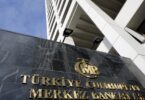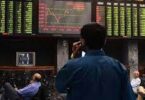Monitoring Desk
CHICAGO: The U.S. economy is close to having met the Federal Reserve’s bar for beginning to reduce its bond purchase program and will meet it soon if job gains continue, Chicago Fed President Charles Evans said on Monday, the latest policymaker to back the central bank’s step away from pandemic-era crisis policies.
“I see the economy as being close to meeting the ‘substantial further progress’ standard we laid out last December,” Evans said in prepared remarks to the National Association for Business Economics annual conference in Virginia. “If the flow of employment improvements continues, it seems likely that those conditions will be met soon and tapering can commence.”
Evans had previously said only that he expected a reduction some time this year to the Fed’s current $120 billion in monthly asset purchases, which are aimed at pushing down longer-term interest rates.
Last Wednesday Fed Chair Jerome Powell signaled the Fed will likely begin tapering as soon as November after he said following the latest policy meeting, at which the Fed kept interest rates near zero, that the economy was one “decent” monthly jobs report short of meeting the threshold. The next report is scheduled for release on Oct. 8.
Since then, two Fed officials, Cleveland Bank President Loretta Mester and Kansas City Fed President Esther George, have said they see the economy already in good enough shape for the central bank to begin to withdraw extraordinary support.
Unlike some of his colleagues, however, Evans remains steadfast in his view that current higher-than-expected inflation does not call for an imminent liftoff in interest rates once tapering is completed.
“I am more uneasy about us not generating enough inflation in 2023 and 2024 than the possibility that we will be living with too much,” Evans said as he argued supply side issues that have caused a spike in inflation will dissipate over the next year.
Supporter of Maximum Employment, Inflation Above 2%
Evans, one of the strongest advocates for the central bank remaining aggressive in seeing through its promise of reaching maximum employment, also urged fellow policymakers to stick to and expand their new framework when it comes to allowing inflation to run above the Fed’s average 2% goal.
“In my view, to anchor long-run inflation expectations at 2%, we must be willing to accept inflation reasonably above 2 percent during the expansionary phase of a cycle to offset the underruns that would almost inevitably occur” when the economy contracts, Evans said.
Courtesy: (Newsmax)






